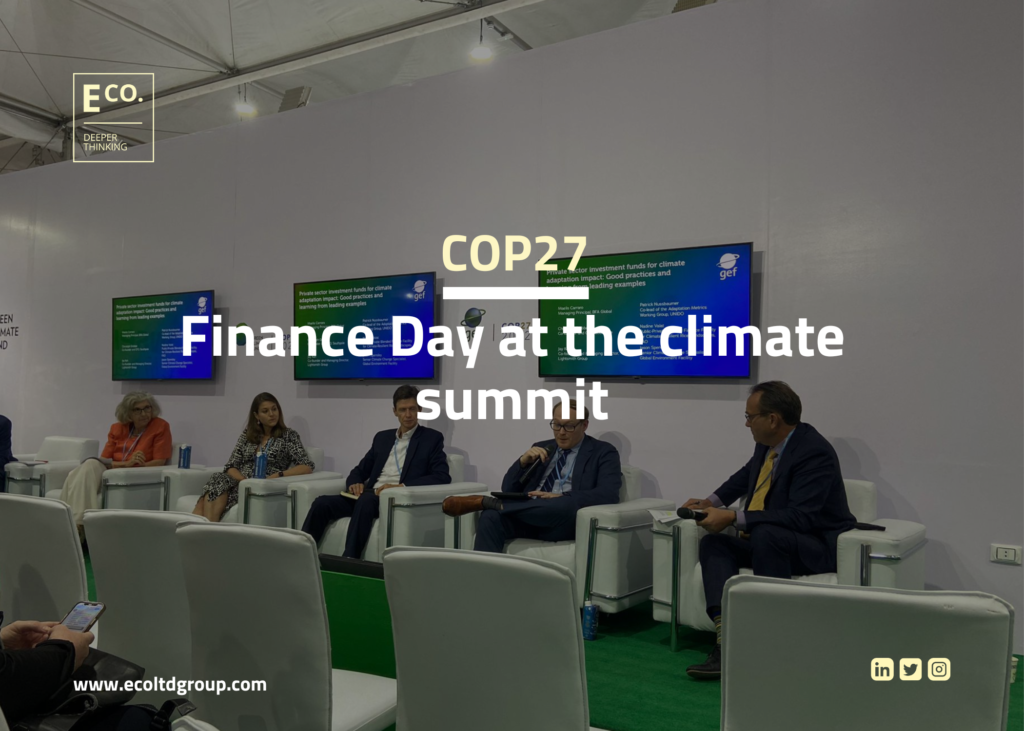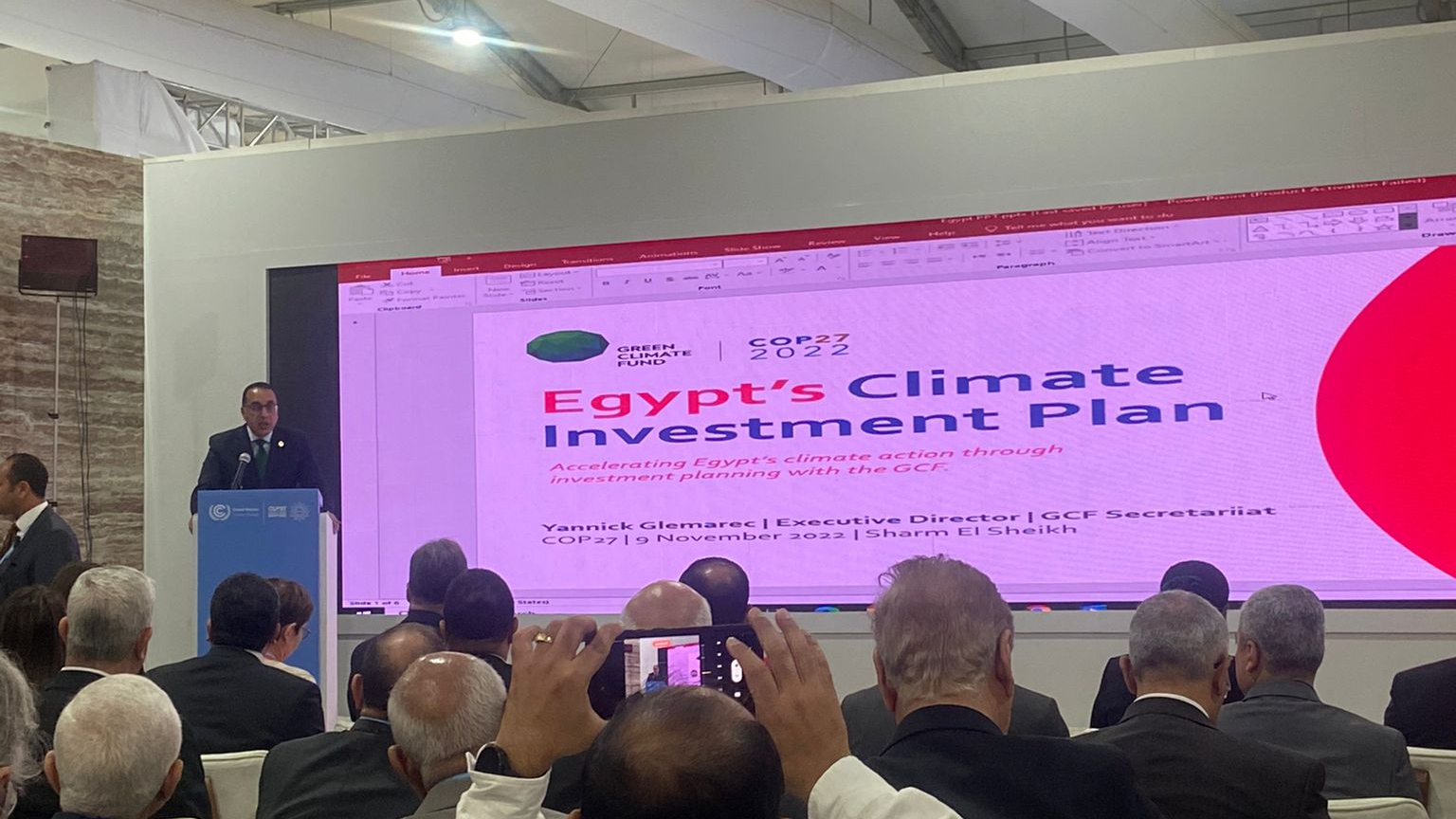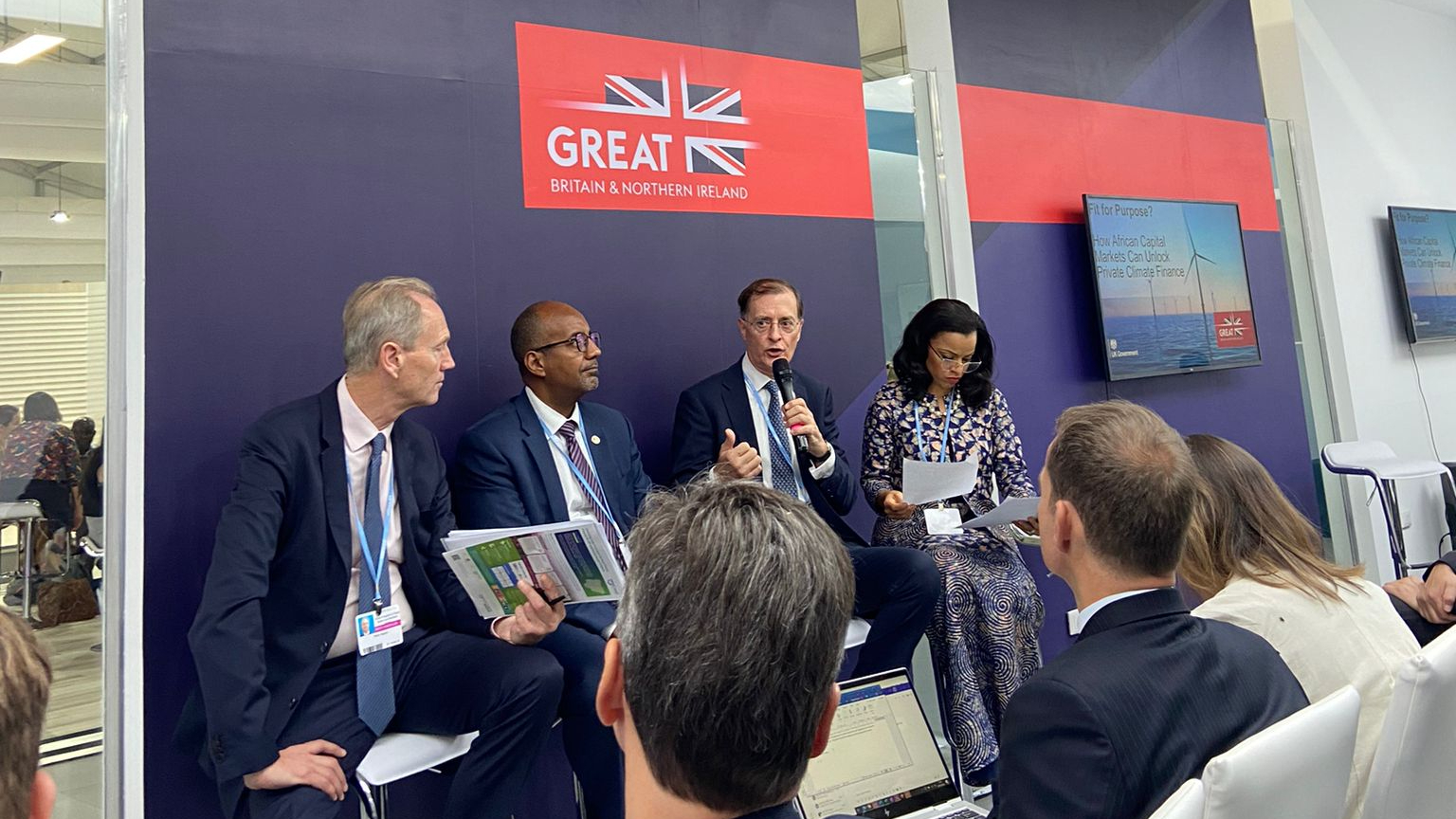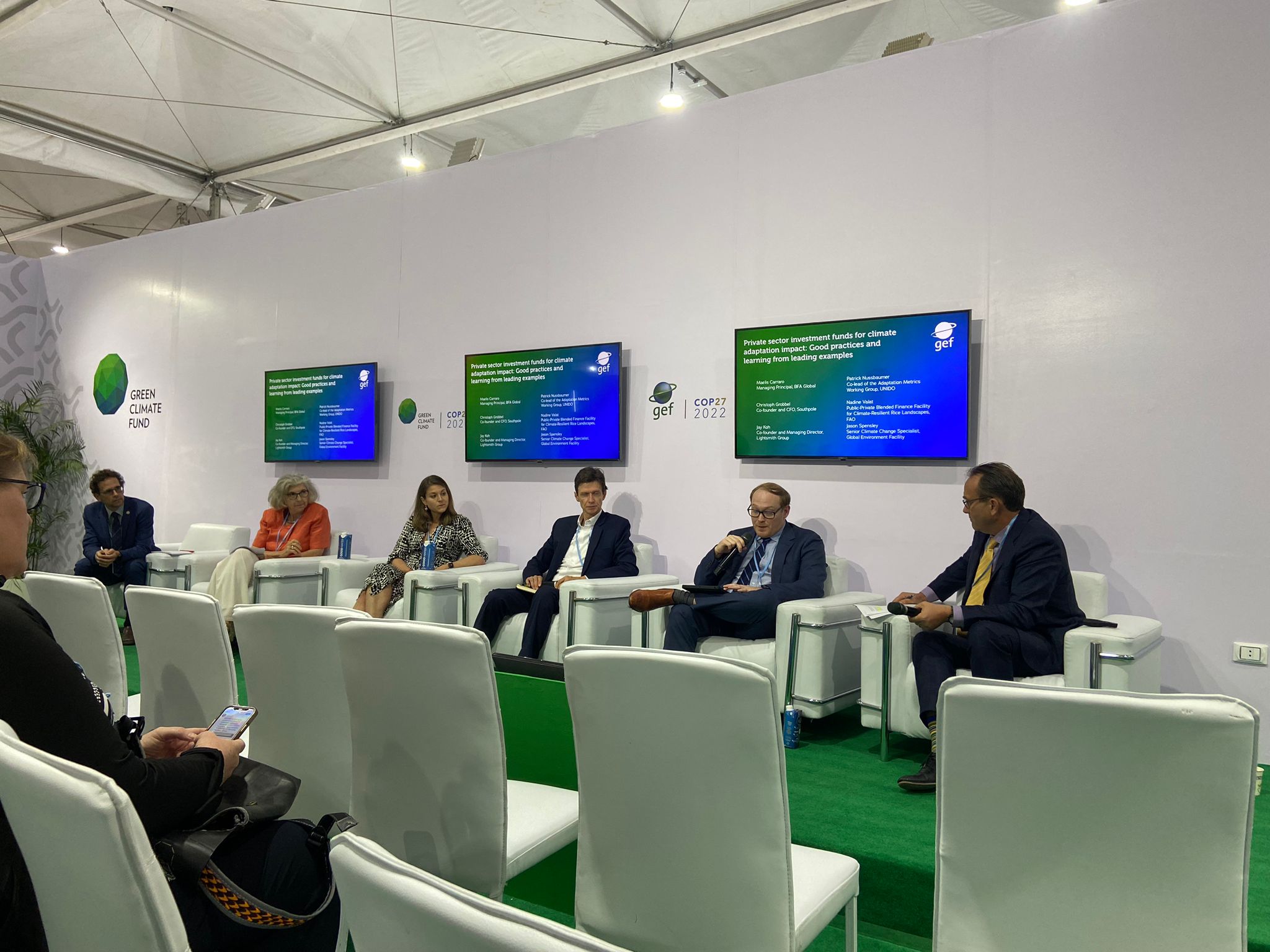COP27: Finance Day at the climate summit
10 November 2022, Category: All insights, News, Tags: adaptation, climate change, climate finance, COP27, Finance Day, Green Climate Fund, sustainable development

Finance Day at COP27 included the announcement of Egypt’s new Climate Investment Plan, which E Co. helped to develop
Day three was Finance Day at COP 27, with a focus on how we can better mobilise the enormous scale of funding needed to address the climate crisis. It’s no secret that we are currently way off the USD 3-7 trillion annually, including USD 2 trillion for developing countries by 2030, that researchers say is needed. Data for 2020 estimates that we’ve only hit USD 362 billion of the amount needed.
Last night, a report highlighting the economic cost of climate change to African economies was published. It found that African countries could see their GDP growth rate fall by up to 20% by 2050 and 64% by 2100, even if we meet the 1.5C warming target.
In light of this context, here are some of the important proceedings that occurred on Finance Day at COP27.
- Egypt’s Climate Investment Plan
- Investment in Africa
- Best practices for private sector investment in climate finance
Egypt’s Climate Investment Plan
One African country, and conference host, Egypt, today announced their national investment plan to help drive finance to where it is needed most. The Investment Plan (IP) is the first such approach in partnership with Green Climate Fund. The Plan aims to help achieve the goals set out in the National Climate Change Strategy (NCCS) and will do so in ways that support the achievement of the country’s desired economic and development goals, following a low-emissions approach.
The investment planning approach helps to deploy climate risk, vulnerability and feasibility assessments early in the design process and at a systems level, rather than on a project-by-project basis. It also offers the potential to move well-designed proposals through the investment processes of climate financiers more quickly.
The IP highlights six key investment priority areas and potential sub-investments within them. The areas are:
- Agriculture; ecosystems, ecosystems services and land use;
- Water security and flood risk;
- Low-emission transport;
- Energy;
- Circular urban economy.
The IP will be written in two volumes. Volume 1 includes an overview of investment needs and identifies the most critical responses. Volume 2 will be designed to maximise co-investment opportunities and to mobilise private sector financing.
E Co. had the privilege of working closely with the Green Climate Fund to write Volume 1 of the Investment Plan. If you’d like to learn more about the plan and Egypt’s approach, see the press release and brochure published today.
Investment in Africa
At the UK pavilion, investment in Africa was also on the agenda. This time with a specific focus on unlocking private climate finance through African capital markets. Panellists noted that the private sector contributes just 14% of climate finance flows to the continent. Mobilising private climate capital at a far greater scale is therefore key. Building sustainable and resilient local capital markets is central to this effort.
The current landscape of African climate finance includes USD 4 billion from the private sector and USD 2 billion from international private investors. Of the USD 2 billion, half goes to just five countries, with the remaining half spread throughout all other African nations. Naturally, such an imbalance may cause some countries to be left behind when tackling climate change.
The panellists stressed the need for this landscape to change but highlighted barriers that make it difficult. For example, international perceptions of risk, including challenging macroeconomic and political situations, are seen as off-putting to investors. Also, governments often cannot contribute their part to blended finance structures to help crowd-in other private sector investors. Risks are high for domestic capital providers too, with financial institutions unable or unwilling to transition from traditional investments, such as treasury bills, to riskier ones such as climate-resilient infrastructure.
The discussion pointed to the need to create an enabling environment using tools such as capacity building that allow for capital markets to deliver on climate-focused investments. This should have a particular focus on helping micro, small and medium enterprises (MSMEs) deliver climate solutions at the community level – “we should all obsess about the localisation of solutions”.
Best practices for private sector investment in climate finance
Lastly, I attended a session at the GEF-GCF Pavilion discussing best practices for private sector investment funds focused on adaptation. Given the financing gap between mitigation and adaptation, especially between the private and public sector, this topic is vital. Panellists included representatives for BFA Global, FAO, South Pole and the Lightsmith Group—all of whom have their own adaptation-focused funds and have been supported in their endeavours by the Global Environment Facility.
The speakers stressed two areas they consider to be best practices if organisations are serious about scaling up private adaptation finance:
- De-risking investments using blended finance through mechanisms such as junior-senior capital or first-loss guarantees;
- Focus on developing the pipeline of potential investments so we can move from investment to implementation as quickly as possible.
What was especially interesting was the contribution from a member of UNIDO’s Adaptation Metrics Working Group. They talked about how measuring adaptation impact is especially difficult compared to mitigation, as there is no formally agreed impact framework i.e. no adaptation-based equivalent to GHG emission reductions which is the standard, globally-recognised mitigation impact metric.
Without a metric like this, it becomes difficult to accurately assess whether the money is flowing to the best place. The Working Group will be publishing a report on how best to overcome this challenge in the coming weeks.
You can read all about day two at COP27 here.
Deep dive: The most important developments for climate finance at COP27
Climate finance was a vitally important topic under discussion at COP27, and many game-changing decisions were made at the summit.
We’ve developed a handy deep dive guide into these decisions and what they mean for the wider world of climate finance and climate resilience.
Let’s accelerate climate action together
Let’s accelerate progress together: Get in touch with our climate finance consultants to discuss a project you’re working on. Email us at: amy@ecoltdgroup.com or find us at the following:
Twitter: @ecoltdnews
LinkedIn: E Co.
Instagram: @ecoltdnews
Please feel free to share your comments below or send an email to: gcfinsight@ecoltdgroup.com



Join the conversation by posting a comment below. You can either use your social account, by clicking on the corresponding icons or simply fill in the form below. All comments are moderated.